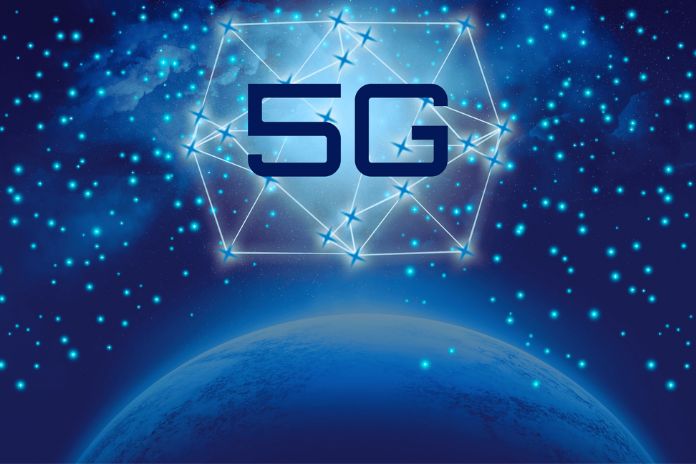With much faster data transmission speeds and unprecedented connection capacity, the 5G technology can potentially transform many sectors of the economy.
Companies are among the main beneficiaries of this new technology but face challenges in adapting to it. This article will explore the impacts and benefits of the 5G network for companies and understand how this technology can change how we do business.
What Is Private 5G Technology?
A private 5G network is a wireless communication network dedicated to a company or organization. This allows companies to have more control over their network and customize it to their needs.
The owner of a private 5G network can license or grant priority access to the wireless spectrum. This benefits factories and other facilities that want to establish private wireless networks with capabilities beyond conventional Wi-Fi or other technologies.
The main differences between private and public 5G networks relate to priority access and isolation. Public 5G networks offered by operators often offer the same access rights to all users, which can lead to network congestion.
However, a private 5G network operator has more control over the network and can configure it to grant different levels of priority access to business-critical activities.
What Main Benefits Can The 5G Network Bring To Companies?
Now that we understand what the private 5G network is, let’s get to the heart of our post: the benefits of the 5G network for companies. See below, which are the top 4.
Unprecedented Speed
The 5G network offers companies a significant benefit in terms of connection speed, allowing them to perform tasks that demand agility in data collection, processing, and analysis, accelerating processes such as inventory monitoring, process automation, and data analysis.
With speeds up to 20 times faster than 4G, the 5G network increases the efficiency of business processes and allows companies to respond to market demands more quickly.
Greater Flexibility
With private 5G, companies can configure and manage the network according to their specific needs, allowing them to adapt to market changes quickly.
This will bring a breakthrough for companies that need a high-capacity, low-latency network to handle large volumes of data or for those that need a more segmented network to ensure data privacy and security.
Possibility Of Customization
With 5G technology, companies can customize the network according to their specific needs, allowing them to adopt customized solutions and meet market demands more efficiently.
This can improve the customer experience and increase the company’s competitiveness. For example, a retail company can use technology to create personalized shopping experiences for its customers, while a manufacturing company can streamline production and reduce delivery times.
More Efficiency
With private 5G, companies can increase efficiency in their processes, becoming more productive and reducing operational costs. Technology can be used to automate tasks and processes, allowing companies to reduce employee workloads and increase the accuracy of operations.
For example, a manufacturing company can use technology to monitor and manage production flow, reducing downtime and increasing productivity.
Greater Security
With private 5G, companies can have a more secure and reliable network, with the possibility of data encryption, cyber attack prevention, and access control. In addition, the private 5G network allows companies to isolate their devices from public networks, reducing the risk of exposure to threats.
What Are The Challenges Of Implementing The 5G Network In Companies?
Regarding internal challenges, companies may face barriers to adopting 5G technology. Some of these challenges include:
Lack Of Qualified Professionals
Adopting 5G technology requires specialized skills and knowledge in wireless networking, cybersecurity, and data analysis. Companies can face challenges in hiring professionals with these skills or training their current staff to handle 5G technology.
Data Management
5G technology enables faster and wider access to real-time data, which can overwhelm companies’ IT infrastructures and data management systems.
It is up to management to ensure they have adequate data management systems to handle the vast amount of data generated by 5G technology.
Integration With Current Systems
Implementing 5G technology in companies will require integration with current systems such as inventory management, production, and logistics software. Businesses can face challenges integrating these systems with 5G technology and ensuring they work together efficiently.
Investment In Technology
Another important point to consider is that adopting 5G technology may require a significant investment in equipment and technology, including software, hardware, peripherals, and other systems compatible with 5G.
Therefore, it is critical that companies carefully evaluate the costs involved in implementing this technology and determine whether the investment is financially viable.
How Important Is It To Choose Good Servers For This New Technology?
The expansion of cloud storage infrastructure and data centers, as well as the increase in data processing capacity, is essential to ensure the good performance of 5G technology in companies.
That’s why it’s important to choose reliable, industry-experienced server providers that can offer scalable and secure solutions to meet new technology demands. In this way, it is possible to ensure a smooth and efficient transition to 5G without compromising the quality of service offered to users.
In summary, 5G technology represents a significant advance in mobile communications and promises to bring a series of benefits to companies. However, to take full advantage of 5G technology, companies need a good server to provide the processing and storage capacity to support technology-enabled applications and services.
Also Read: The Role Of 5G In Making Technology More Sustainable

